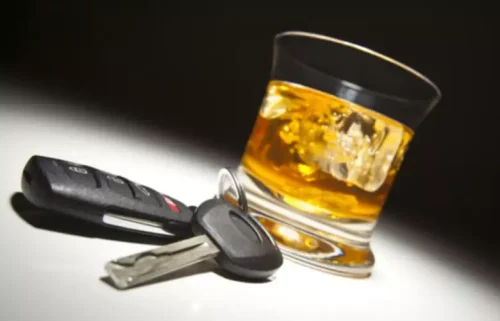
However, if you don’t learn to manage those fears and put them into perspective, they will drive you right back to the bottle. On the one hand, you hate what your life has become due to drinking. On the other, you’re scared to death of what sobriety will do to your world.
- Sobriety in our thoughts helps us embrace this transformation, allowing us to let go of old, harmful patterns and adopt a new, holy nature.
- The idea of taking the joy and connection out of our interactions is not at all appealing.
- Depending on how deeply ingrained alcohol is in your life, you may be staring down an entire life makeover.
- But you do need patience, empathy for yourself, and a firm commitment to meeting your goal.
- Five studies found that stigma was a positive predictor or copredictor, three that it was negative predictor or copredictor, and three that it was not a predictor at all.
When the Fear of Being Sober Means Facing Emotion

This might be reading, painting, exercising, playing with your kids, or learning new things. You may have to try out a few new things before you find your “aha! Rediscovering your personality in sobriety can be scary—but it can equally be a beautiful and exciting thing. Utilize your journal as you try out new things to reflect on how the experiences made you feel. Once you find something that you enjoy, make special time for it and do it to the best of your ability. Eudaimonia offers excellent recovery programs with tailored care.
Seven Common Fears in Recovery (and Why Sobriety Is Still Worth It)

For some, being sober means dealing with painful memories, powerful emotions, and incredibly stressful thought patterns. While some people fear the physical pain of getting sober, others are more concerned about having to face emotions fear of being sober they’ve long avoided. Without drugs and alcohol, it may seem hard to manage symptoms of stress, depression, anxiety, or past trauma. If fear is holding you back from seeking addiction treatment, it can be helpful to assess your feelings and try to pinpoint the source of your fear. Once you are able to specify and name your fear, you can address it. Consider a few examples of what may be holding you back.

Fear of Failing at Sobriety

Even people for whom alcohol is not a problem experience this. If you’ve typically required a little social lubricant to lighten up at parties (as Sober living house many of us have), navigating social scenes without liquid courage can be scary. This is particularly true for the introverted among us. What you do NOT want to do is let your fear about what MIGHT happen with your friends in the future dictate what you do to take care of yourself in the present.
- This can include moving in a new social circle, taking up new activities and leading a healthier lifestyle.
- As you work through the detox process, you can start to feel the overwhelming frustration and anxiety build around being sober.
- When you get sober you have to learn how to live a life without drugs or alcohol, which means several things.
- They are afraid that if they do get sober they will lose the ability to have fun.
A sobriety date is the very first 24 hours you go without alcohol or drug use and is used to determine how long you have maintained your sobriety. Each individual will have their journey with addiction and sobriety, but typically, the first six months of sobriety are considered the most difficult. Non-drinkers may experience a healthier and happier emotional state compared to binge drinking.
Boo! How to Overcome the Fears of Sobriety
They’re more interested in what the bartender is pouring for them! We’re the ones showing up sober, without our habitual shielding. It’s a big thing in our minds but there’s zero need to project this anxiety on to others. At Eudaimonia Recovery Homes, we understand that overcoming fear is a critical aspect of addiction recovery. Surrounding yourself with supportive people can make a big difference. For instance, support groups, like those found in sober living Austin, provide a safe space to share experiences, hear others’ stories, and receive encouragement.

Ready to speak with a Recovery Advisor? Call us any time.
In a similar vein, sometimes stigma is not perceived as such directly, but can be seen in indirect ways (eg, worried about what others will think, feelings of embarrassment). Every person faces fear at various times in their lives. The type of response we have to situations differs from one person to the next.
- However, fear can also be harmful to you–and this is especially true in both addiction and recovery.
- For certain substances and levels of addiction, this is a medical necessity.
- Recognize your fear for what it is and reach out for help with your drug or alcohol addiction.
- What you should know is that almost all addicts seeking help have relapses.
Articles
Indeed, modern substance-use-treatment approaches are centered on the stages-of-change model. Next, the bodies of the remaining papers were reviewed. We also included both articles that specified diagnoses of AUD or DUD and those that referenced problematic alcohol or drug use in the absence of an official diagnosis. We did not screen articles based on the legality of the substance. We did exclude studies that looked solely at nicotine dependence, as this was not the target of this review. Because we aimed to be as inclusive as https://ecosoberhouse.com/ possible, we did not exclude articles based on quality of evidence, but rather critiqued articles as appropriate in our analysis.